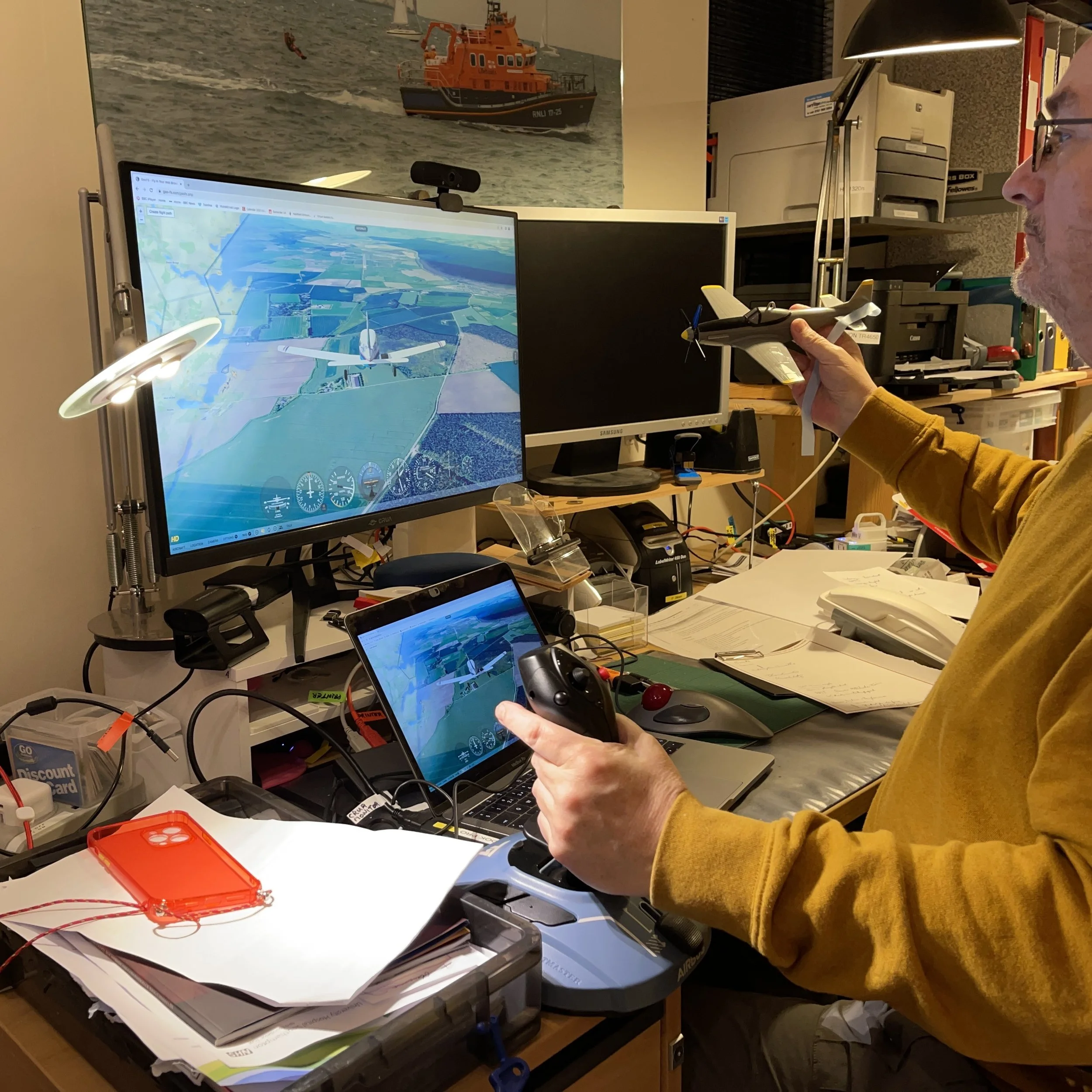First 20 students complete inaugural Virtual Aviation Experience - applications open for next 75
Twenty people with a disability have completed the inaugural Aerobility Virtual Aviation Experience course - and applications are now open for the next 75 places on this revolutionary programme that enables them to fly an aircraft simulator from home while being guided and trained by an instructor.
This milestone marks a significant achievement in providing accessible aviation and inspiration to individuals across the country, as the charity looks ahead to welcoming new participants.
The Virtual Aviation Experience (VAE) launched by Aerobility, is supported by the Department for Transport and opens up the world of aviation to a community of people that might previously have felt it was beyond their capability.
Isobel Jones, one of the first 20 VAE students, has chronic pain in her legs, knees and shoulders and uses a wheelchair for most mobility. She was very positive about the experience.
“I just wanted to say thank you so much for teaching me the basics of flying during our simulator sessions as part of the Virtual Aviation Experience,” she said. “I have well and truly been bitten by the aviation bug, and I hope to try flying a real plane soon!”
Mike Angus, another VAE participant, suffers from Ménière's disease, which causes balance problems, and spinal fusion leading to pain and fatigue. He said: “If you get the chance to try the course, take it with open arms!”.
The aim is to provide 1,000 flying experiences a year by 2025. VAE flyers receive three one-hour sessions, made up of a 30-minute ground briefing followed by a 30-minute, simulator flight directed by their instructor. Delivered over three days, each one builds on the previous session until flyers can make decisions, manage a workload, and practice coordination while developing situational awareness including interacting with others, without leaving their homes.
Mike Miller-Smith, CEO of Aerobility, said: “The Virtual Aviation Experience is the merger of flight school and simulator and delivers it to any disabled person throughout the UK through their computer. The program helps us support those disabled people who are unable to make it to our centres at Blackbushe Airport and Tatenhill Airfield.
“It also provides a realistic introduction to piloting one of Aerobility’s aircraft, so should the bug take hold, VAE flyers will have a head-start when coming to fly with us for real.”
The courses are led by Aerobility pilots, volunteers and flight instructors and are free of charge for those who get a place. The courses are for adults and children aged 12 and above. Applicants should be able to control a computer.
After completing the course, those interested in furthering their aviation experience, can visit Aerobility at Blackbushe in Hampshire or Tatenhill in Staffordshire to book more flying experiences. VAE flyers will also receive a certificate of completion.
Mike added: “VAE is for beginners, people who have never had the chance to fly an aeroplane before. Everyone with a disability who has dreamed of experiencing the freedom of the skies can now do so from their home with VAE.
“I really encourage anyone who has dreamed of flying a plane to apply for one of the VAE places - it could change your life.”
To apply for a place simply visit www.aerobility.com/virtual-aviation-experience.

